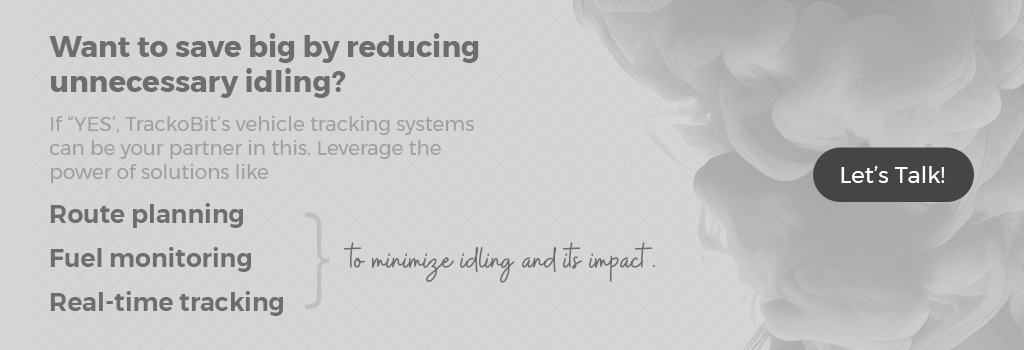-
TrackoBit
Manage commercial vehicles with the new-age Fleet Management Software
TrackoBit -
TrackoField
Streamline your scattered workforce with Field Force Management Software
TrackoField -
Features Resources
-
Blog
Carefully curated articles to update you on industrial trends. -
White Paper
Insightful papers and analysis on essential subject matters. -
Glossary
Explore an alphabetical list of relevant industry terms. -
What’s New
Get TrackoBit & TrackoField monthly updates here. -
Case Study
Explore the cases we solved with our diverse solutions. -
Comparisons
Compare platforms, features, and pricing to find your best fit.
-
About Us
Get to know TrackoBit: our team, ethos, values, and vision. -
Careers
Join the most dynamic cult of coders, creatives and changemakers. -
Tech Support
Learn about our technical support team and services in detail. -
Events
Check out the exhibitions where we left our marks and conquered. -
Contact Us
Connect with us and let us know how we can be of service.
What is Idling: 4 Ways to Reduce Vehicle Idling and Save Fuel Costs
- Author:Anvesha Pandey
- Read Time:7 min
- Published:
- Last Update: July 3, 2024
Table of Contents
Toggle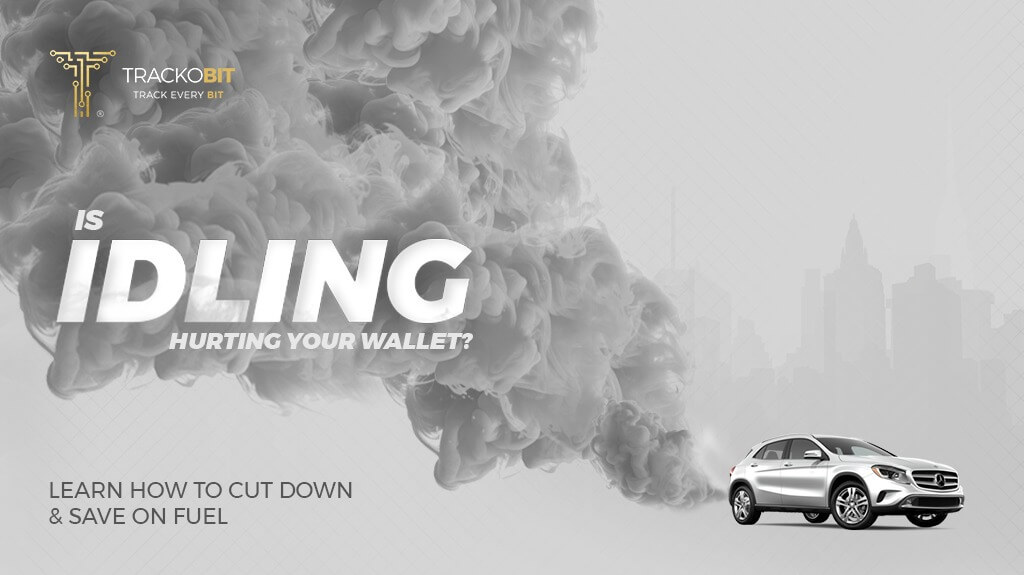
Excessive idling is a concerning event that adds to pollution and excessive fuel costs. Here are 4 simple to implement ways to reduce vehicle idling, save money, and protect the environment.
Table of Contents
Toggle
Is your vehicle burning a hole in your wallet (and the ozone layer)? It might be idling! It’s a common habit for drivers, especially those operating giant fleets, to leave their engines running. This habit is noticeable in vehicles even when they are not parked or stuck in traffic. Drivers intentionally keep the ignition on and burn the oil. But what seems like a small convenience can have a big impact on your fuel budget and environmental footprint.
This piece of writing dives deep into the details of what is idling, its impact, and the top 4 ways to reduce it to save big on fuel costs.
So, if soaring fuel costs are making you question your increasing fuel costs, this blog is just for you.
Vehicle Idling – MEANING
Vehicle idling aka engine idling refers to the running of a vehicle’s engine while it is not in motion. This typically occurs when a vehicle is stationary, such as when parked or stopped at a traffic light, and the engine continues to run. Idling happens without the vehicle being actively used for driving or performing any other function besides keeping the engine running.
Vehicle idling can occur for various reasons, such as to keep the vehicle’s interior climate controlled, to power onboard equipment (like in emergency vehicles or utility trucks), or simply due to habit or convenience. However, prolonged idling can contribute to air pollution, fuel consumption, and engine wear and tear, which has led to efforts to reduce unnecessary vehicle idling in many places.
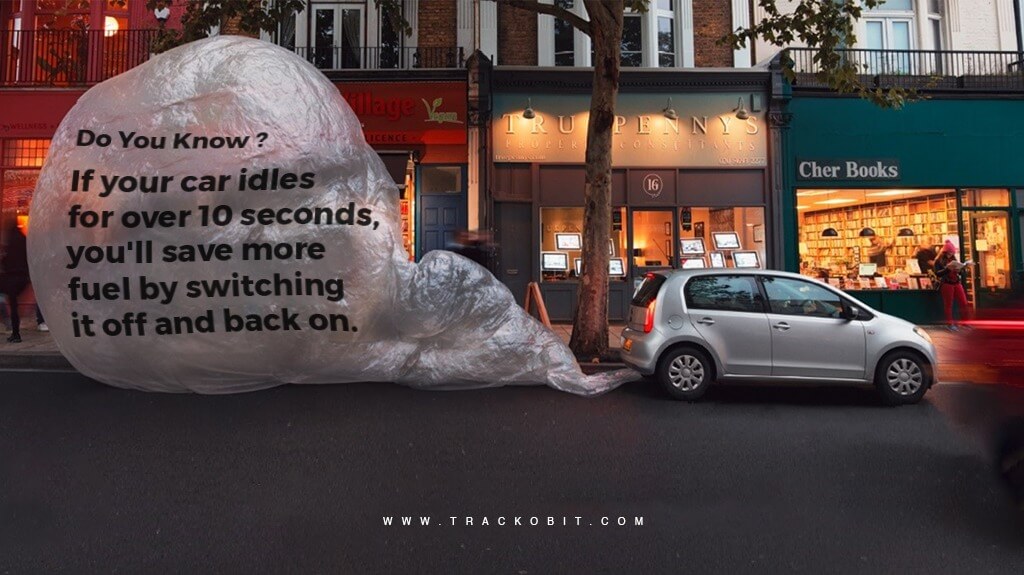
Operational & True Vehicle Idling- THE TWO TYPES OF IDLING
When discussing idling in the context of vehicles, there are generally two types- operational idling and true idling. These distinctions are important as they impact fuel consumption, emissions, and overall vehicle efficiency differently. The table below makes this clear for you.
| Aspect | Operational Vehicle Idling | True Vehicle Idling |
| Definition | Engine running while performing necessary tasks (e.g., loading). | Engine running without performing any productive tasks. |
| Purpose | Necessary for operational tasks and duties. | No specific purpose, often due to waiting or traffic conditions. |
| Fuel Consumption | Moderate, depending on frequency and duration. | This can lead to increased wear and reduced engine life. |
| Examples | Running the engine to operate hydraulic lifts or keeping the engine on for PTO (Power Take-Off) operations. | Waiting at traffic lights |
Now, before we dive into the best ways to reduce vehicle idling and save fuel costs, let’s take a look at some numbers on how much fuel is used when a vehicle idles.
| 📌According to the Environmental Protection Agency reports, Idling for long periods consumes a significant amount of fuel. On average, idling consumes between 0.1 – 0.5 gallons of fuel per hour, depending on the vehicle size and engine type. |
The stats clearly show how important it is to control engine idling because it leads to extra fuel consumption! So let’s have a look at some solutions.
Top 4 Ways to Reduce Vehicle Idling and Save Fuel Costs
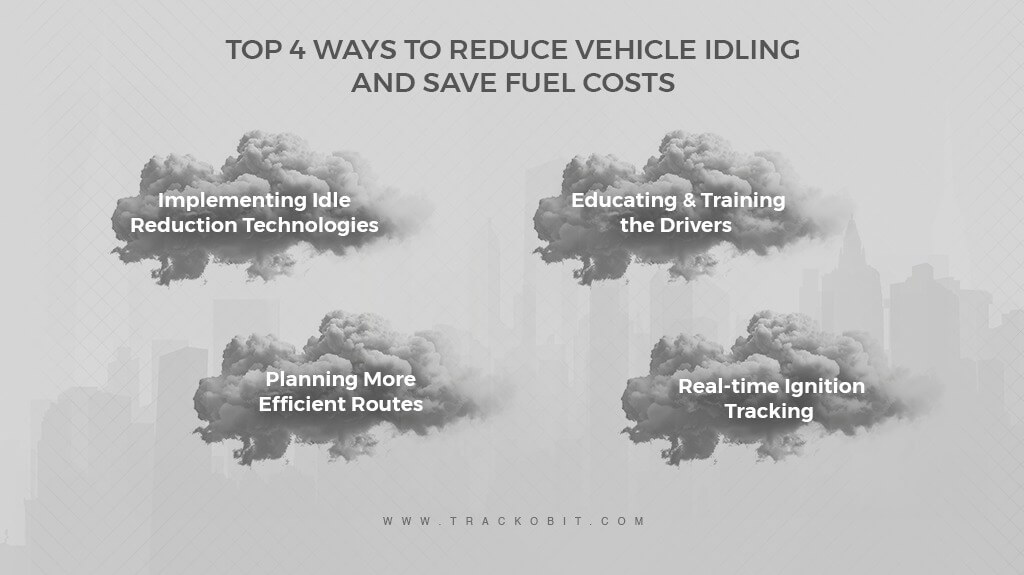
When it comes to logistics and transportation optimizing fleet operations becomes crucial especially for reducing costs, enhancing sustainability, and improving overall efficiency. The below-mentioned key strategies can help you reduce idling and save fuel costs.
1. Implementing Idle Reduction Technologies
The main aim of idle reduction technologies is to minimize the amount of time a vehicle engine spends idling. Advanced technologies such as automatic engine systems, auxiliary power units (APUs), and direct-fired heaters can effectively manage vehicle idling.
The systems automatically shut down engines after a predetermined period of vehicle idling and provide alternative power sources for heating, cooling, and electrical needs, thereby conserving fuel and reducing operational costs.
2. Educating & Training the Drivers
Drivers are pivotal in the effective operations of the fleet. They can educate drivers about fuel-efficient driving techniques such as maintaining steady speeds, minimizing abrupt acceleration and braking, and proper vehicle maintenance practices by analyzing the patterns.
Moreover, training programs that emphasize eco-driving techniques benefit the environment. Additionally, it also contributes to the longevity of vehicles, reduces maintenance costs over time, and decreases the consumption of fuel in the long run.
3. Real-time Ignition Tracking
Real-time ignition tracking involves monitoring vehicle ignition status remotely and in real-time. This technology enables fleet managers to promptly identify instances of excessive idling or unauthorized vehicle use.
By analyzing ignition data, managers can implement corrective measures such as driver coaching or policy enforcement to optimize vehicle utilization and reduce unnecessary fuel consumption. Moreover, real-time ignition tracking significantly contributes to reducing fuel consumption by identifying excessive idling, optimizing vehicle utilization, and more.
4. Planning More Efficient Routes
Effective route planning is crucial for fleet-centric businesses. This is where ideal route planning software comes into play that comes with robust capabilities of managing trips, defining optimal routes, and tracking them in real-time. It allows managers to set and track the most efficient routes that avoid as many idling zones as possible.
📌A Valuable Read- What is Route Planning in Logistics?
Route planning software with robust GPS technology does more than just find the best path from point A to B. It provides deep insights into past trips to help understand the routes previously traveled and save the most efficient ones.
| 💡For that extra saving
Gamification as a means to Reduce Idling and Save Fuel Costs Gamification is a creative and engaging means to reduce idling and save fuel costs. It’s like leveraging human psychology and competition to encourage behavior change. By gamifying your dashboards, you can challenge your drivers and introduce them to elements like points, rewards, challenges, and opportunities to top the leaderboards. Isn’t it engaging and effective? Gamify your dashboards with TrackoBit. |
📌Give a minute of yours reading this piece:- Fleet Gamification: Optimizing Your Fleet’s Trips
Is Idling Good For Engines or Not?
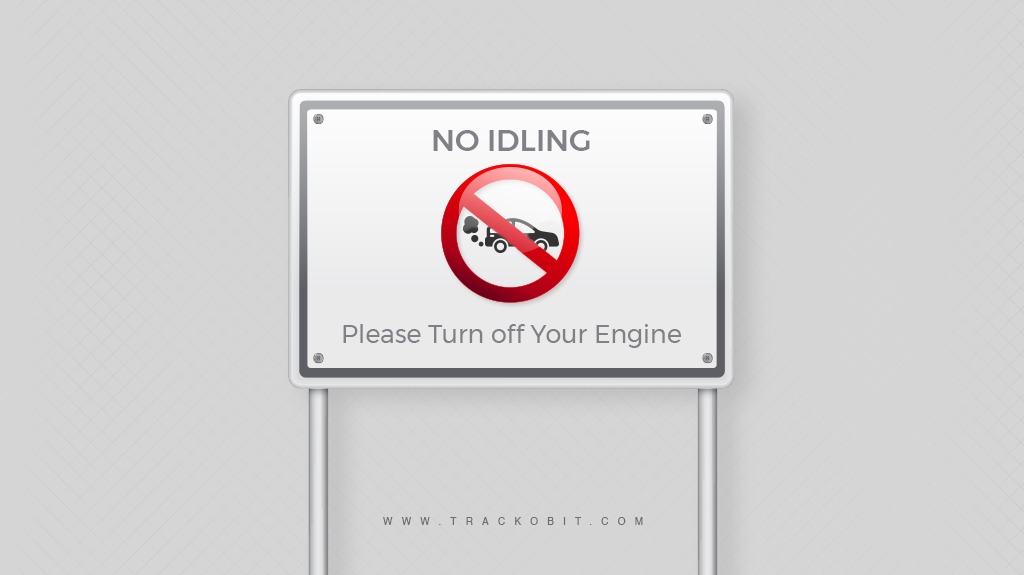
Vehicle idling is generally not considered good for modern engines, especially when it occurs for a long.
period of time. Some of the most common reasons why vehicle idling can be detrimental or harmful to the engines are mentioned below –
➡️ Wear and Tear
As we know idling causes the engine to operate at low RPMs (revolutions per minute), which can lead to incomplete combustion of fuel. This incomplete combustion can result in the buildup of carbon deposits on engine components such as spark plugs, valves, and pistons, eventually leading to increased wear and reduced engine efficiency.
➡️ Fuel Consumption
As stated previously, idling consumes fuel without providing any significant benefit in terms of mileage or engine performance. This can lead to unnecessary fuel expenses and increased carbon emissions, contributing to environmental pollution.
➡️Oil Contamination
Extended idling can lead to the contamination of engine oil. When the engine operates at low temperatures for prolonged periods, the combustion process is less efficient, causing unburned fuel to mix with the oil. This can dilute the oil and reduce its lubricating properties, potentially leading to increased friction and wear on engine parts.
➡️Heat Buildup
Vehicle idling does not generate sufficient airflow over the engine components to dissipate heat effectively. This can result in the overheating of certain engine parts. This further may accelerate wear and increase the risk of engine overheating during prolonged idling.
The Cases of Exceptions
To your surprise, there are some situations in which vehicle idling can actually be healthy for the vehicle’s engine-
➡️ Cold Starts
In such cases, we allow the engine to idle for a short period to help warm up the engine oil and improve lubrication before driving, which is particularly beneficial in colder climates.
➡️ Operating Auxiliary Equipment
In certain applications, such as emergency vehicles or vehicles equipped with specialized equipment (e.g., mobile cranes), idling may be necessary to operate auxiliary systems or maintain essential functions.
So, What to Do?
To minimize the negative effects of idling on the engine and overall vehicle performance, it’s recommended to:
➡️Limit Idling Time
Avoid unnecessary idling by turning off the engine when parked or waiting for extended periods.
➡️Warm-Up Efficiently
During cold starts, limit idling time to just a few minutes to allow the engine to warm up gradually before driving.
➡️Monitor Idling
Use vehicle telematics or monitoring systems to track and manage idling time, allowing fleet managers to identify excessive idling and implement corrective measures.
📌Some Substantial Reads |
In a Nutshell
Reducing vehicle idling is crucial for saving fuel costs, minimizing environmental impact, and enhancing vehicle longevity. It’s time to reduce the burden on your pocket as well as contribute to the environment effectively by cutting down on idling with solutions like real-time monitoring, fuel management systems, and detailed insights.
📌How TrackoBit’s Vehicle Tracking System Can Be Your Partner in Reducing Fleet Idling?
TB’s vehicle tracking system can be your partner in this as we provide more than just tracking. Our valuable suite helps you.
Slash Fuel Costs & Improve Your Fleet-
- Fuel Monitoring Systems- Reduce fuel waste and spending at the pump.
- Driver Behavior Monitoring– Promote eco-conscious driving and boost efficiency.
- Minimize Environmental Impact: Lower your carbon footprint for cleaner air.
So, excited to know more?
Get in touch today!
FAQs
-
What is the impact of engine idling?
Engine idling contributes to several negative impacts. It increases fuel consumption and emissions of pollutants like carbon dioxide, nitrogen oxides, and particulate matter, which degrade air quality and contribute to climate change. Idling also accelerates engine wear and increases maintenance costs. Moreover, prolonged idling wastes fuel and reduces overall vehicle efficiency.
-
How can vehicle maintenance help in reducing engine idling?
Regular vehicle maintenance is essential for reducing engine idling. Properly maintained engines operate more efficiently, reducing the need for prolonged idling. Routine checks and servicing of engine components such as spark plugs, air filters, and fuel injectors optimize engine performance and fuel efficiency. Additionally, maintaining proper tire pressure and ensuring all vehicle systems are in good working order contribute to overall efficiency, minimizing the time engines need to idle unnecessarily.
-
What are the ways to reduce engine idling?
There are several effective ways to reduce engine idling. Encouraging drivers to turn off engines when parked or stopped for extended periods can significantly reduce unnecessary idling. Utilizing technologies like automatic engine shut-off systems can help minimize idling time. Promoting awareness through education campaigns and implementing policies or regulations that discourage idling also play crucial roles in reducing emissions and conserving fuel.
Anvesha is a communication specialist at TrackoBit. With a strong background in media and communications, she adds much-needed balance and brevity to TrackoBit’s... Read More
Related Blogs
-
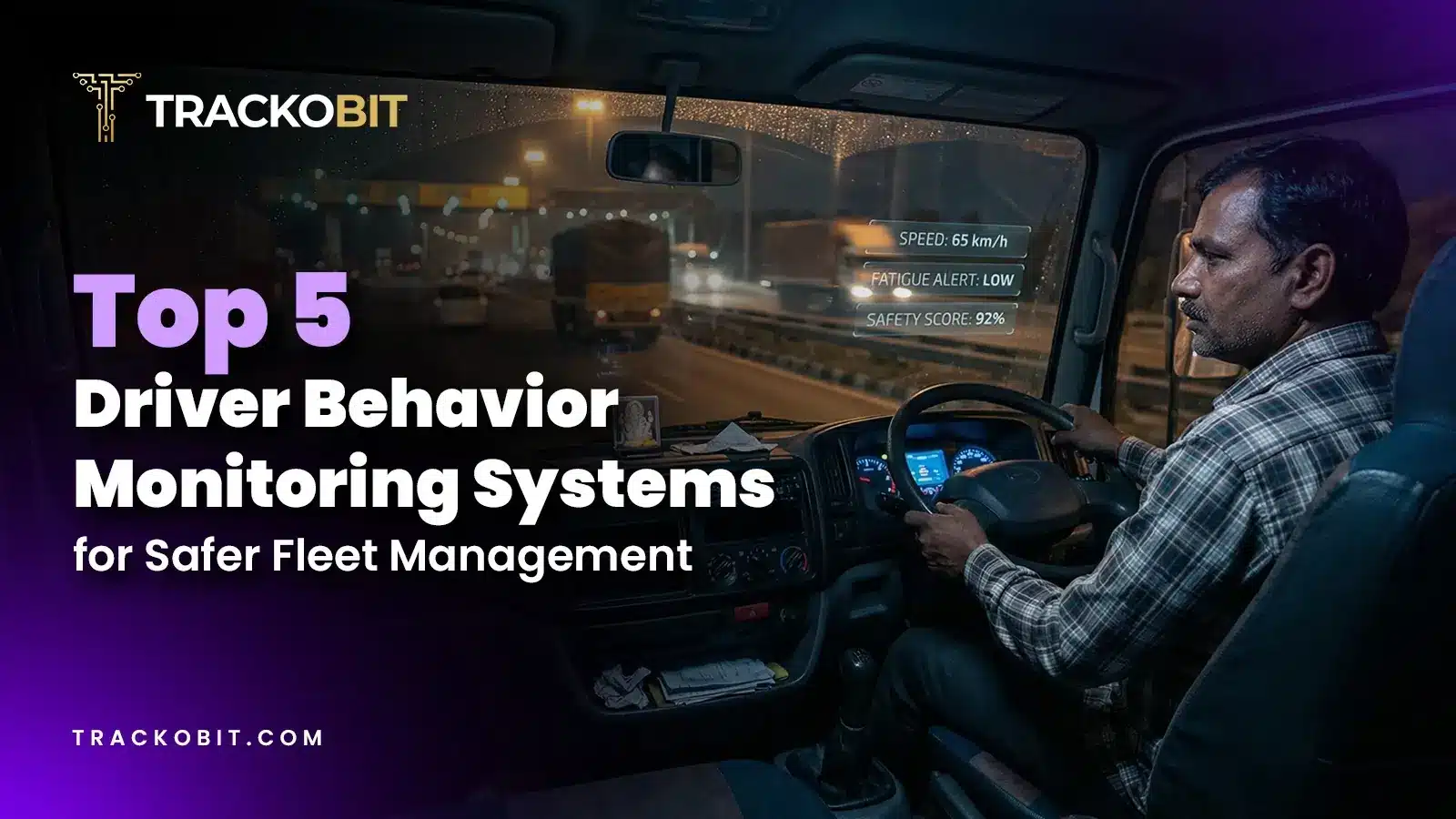
5 Best Driver Behavior Monitoring Systems for 2026
Tithi Agarwal February 23, 2026Having the best driver behavior monitoring system is a necessity as it helps you ensure driver safety and optimize operational…
-
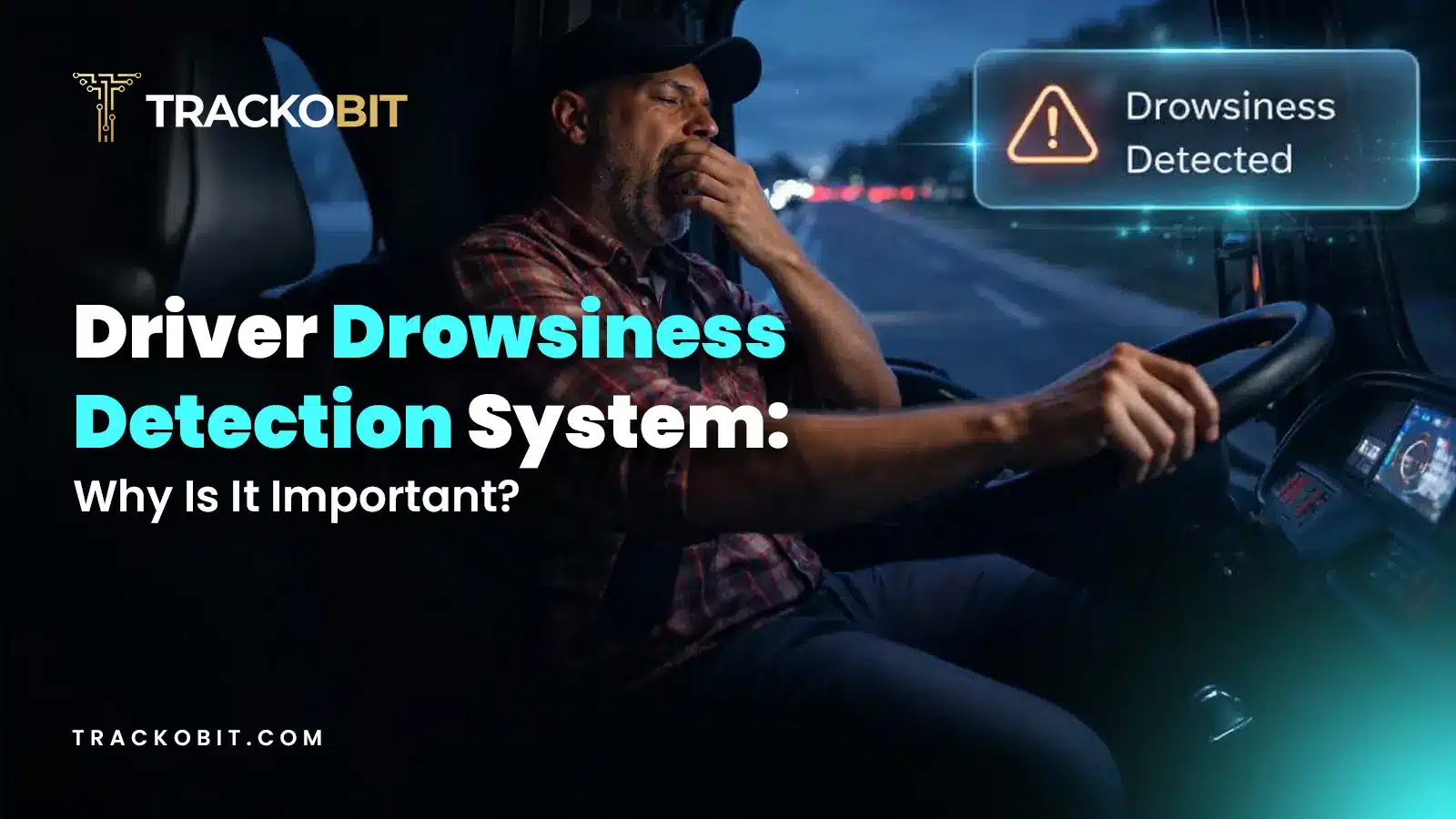
Why is Driver Drowsiness Detection System Important for Fleet Management?
Shemanti Ghosh February 4, 2026A driver drowsiness detection system is critical for fleet management. It helps prevent fatigue-related accidents and reduces operational risks through…
-
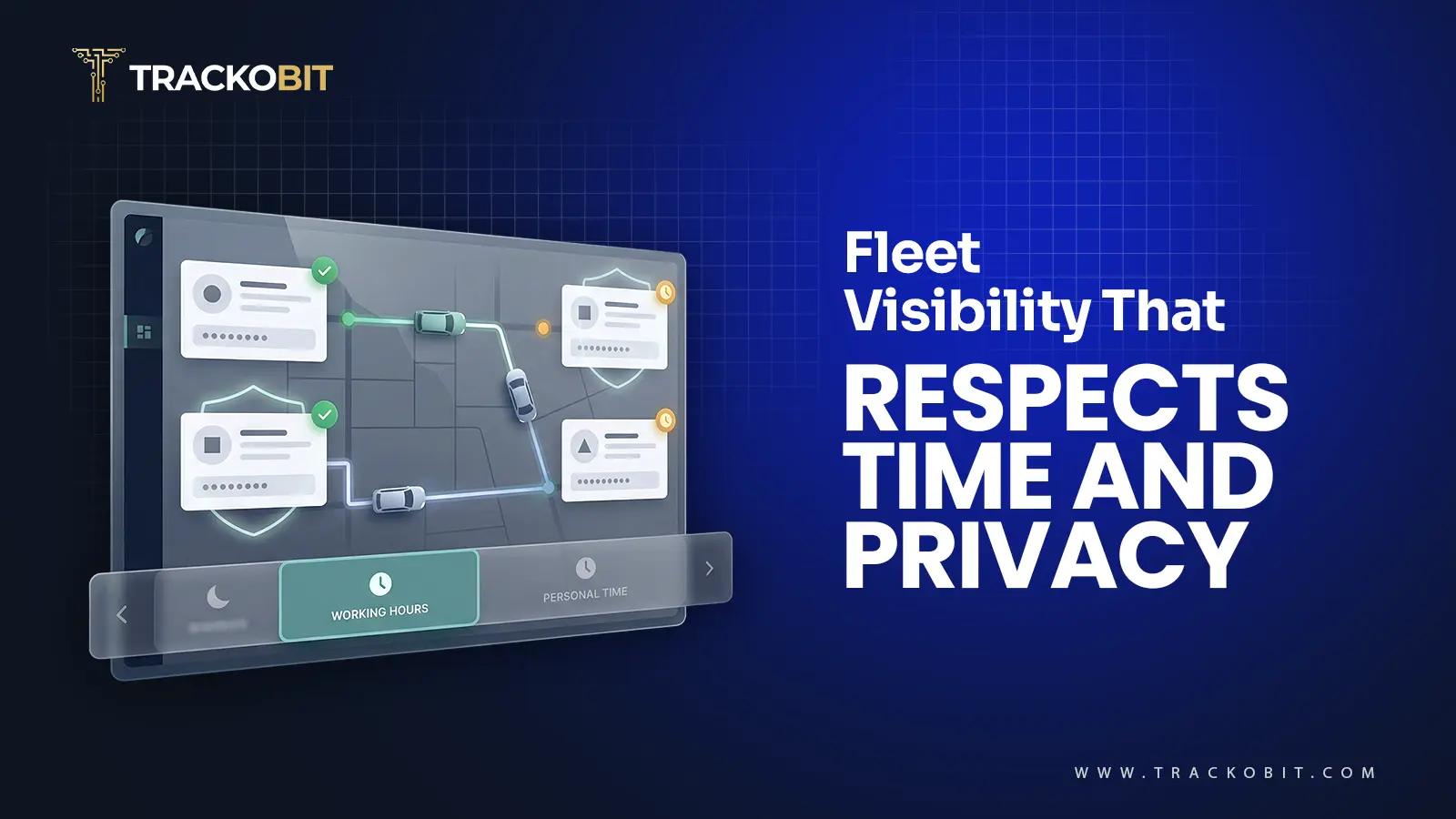
When Tracking Needs a Clock: Rethinking Fleet Visibility
Tithi Agarwal December 24, 2025Read on to understand why fleet tracking works better when it follows working hours. Because visibility should support operations, not…
-

What Makes TrackoBit’s Video Telematics Software Truly Next-Gen?
Shemanti Ghosh December 17, 2025TrackoBit’s video telematics software blends smart video intelligence with full server control. The result? Superior fleet reliability and safety.

Subscribe for weekly tips to optimize your fleet’s potential!
Your inbox awaits a welcome email. Stay tuned for the latest blog updates & expert insights.
"While you're here, dive into some more reads or grab quick bites from our social platforms!"Stay Updated on tech, telematics and mobility. Don't miss out on the latest in the industry.
We use cookies to enhance and personalize your browsing experience. By continuing to use our website, you agree to our Privacy Policy.




































